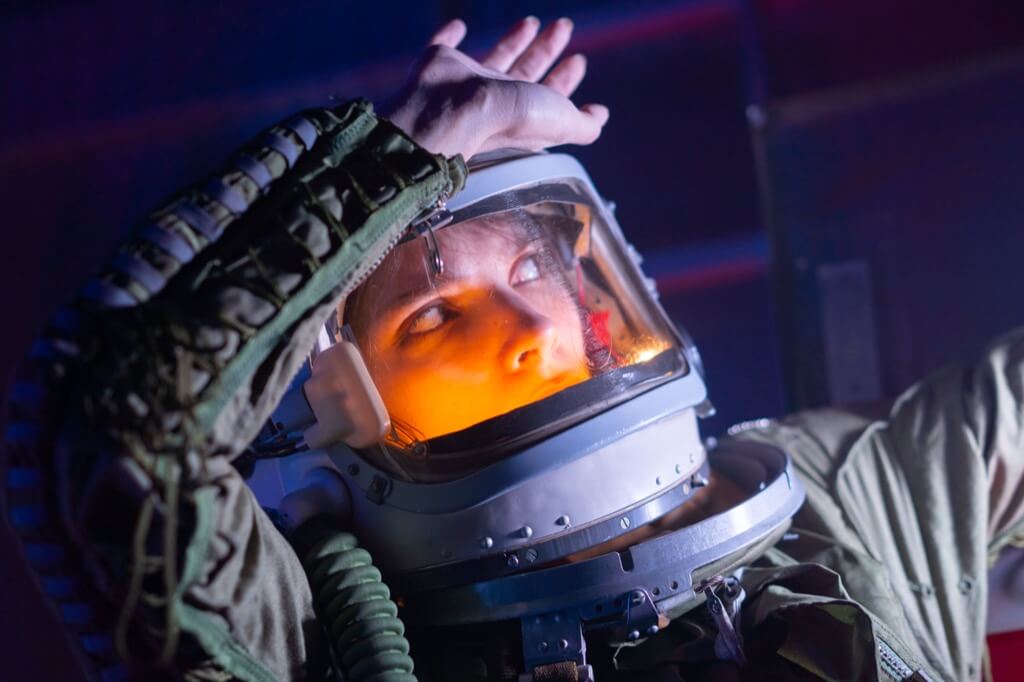Do you recall those childhood visits to your grandparents’ house and the unique smell that
A Cosmic Spiritual Journey

In the midst of a tumultuous world in 1968, Apollo 8 embarked on an historic mission that would captivate the hearts and minds of people around the globe. As the spacecraft entered orbit around the moon on Christmas Eve, an estimated one billion people tuned in to witness this extraordinary moment. In this article, we take you back to that pivotal moment in history and explore the profound impact it had on both the Space Race and humanity’s quest for meaning.
As Apollo 8 emerged from the moon’s shadow, astronaut Bill Anders’s voice crackled over the airwaves, delivering a message that would resonate throughout history. The crew of Apollo 8 took turns reading verses 1-10 from the Book of Genesis, sharing the story of creation with a captive global audience. Their readings culminated with a heartfelt wish for a Merry Christmas, good luck, and a blessing for everyone on Earth.
The Apollo 8 Genesis reading became an iconic moment during a turbulent year marked by violence and unrest. Against the backdrop of the Vietnam War escalation and the tragic assassinations of Robert Kennedy and Martin Luther King Jr., this transmission provided a much-needed ray of hope. It reminded people that even in the darkest of times, there was a sense of unity and wonder that transcended the earthly troubles.
Not everyone embraced the Apollo 8 Genesis reading with open arms. Madalyn Murray O’Hair, the founder of American Atheists, filed a lawsuit against the United States Government in 1969. She argued that astronauts reading religious texts on a government mission violated the First Amendment’s separation of church and state. However, the Supreme Court dismissed O’Hair’s lawsuit in 1971, upholding the long-standing tradition of religion in the United States Space Program.
Religion in NASA’s DNA
Religion has been an integral part of NASA since its inception. In the early days of the agency, its members were predominantly Christians, reflecting the religious landscape of 1960s America. The first astronauts, known as the “Mercury Seven,” were not only skilled test pilots but also exemplified the ideal of clean-cut, church-attending family men.
Astronauts as Symbols of Faith
The astronauts themselves often served as symbols of faith. Leroy Gordon Cooper, a member of the “Mercury Seven,” even felt pressured to reunite with his estranged wife to enhance his public image. The astronauts embodied the American values of the time, including religious faith, as they ventured into the unknown.
The religious community rallied behind the space program, viewing it as a testament to human achievement and divine exploration. Pope Paul IV followed the Apollo program with great interest, while Cardinal Terrence Cook of New York saw the moon mission as a symbol of unity among humanity. Rabbi Aryeh Lev of New York believed it was a way for God to reveal new truths about creation.
John Glenn, the first American to orbit the Earth and an ordained Presbyterian Elder, eloquently expressed his belief in the divine when he said, “I find it inconceivable that one might be able to look out at this type of creation and not believe in God.” His words resonated with many who saw the grandeur of the cosmos as a testament to the divine hand behind it all.
The Potential Future Impact of Space Religion
In our previous exploration of Apollo 8’s historic Genesis reading, we journeyed back to a moment that bridged the earthly and the celestial, offering a glimpse into the profound connection between space exploration and religion. Today, I invite you to join me on a contemplative journey into the potential future impact of what I like to call “Space Religion.” As we look ahead, we’ll ponder the ways in which this evolving intersection of spirituality and space exploration might shape your perspective and our shared future.
Finding Spiritual Meaning in the Cosmos
In a world often beset by division and discord, the unifying power of space religion holds the promise of a more harmonious future. Imagine a world where the vast expanse of the universe serves as a cosmic cathedral, inviting individuals of diverse backgrounds and beliefs to seek spiritual meaning among the stars. As you contemplate your place in the cosmos, this newfound unity could inspire a sense of purpose that transcends earthly boundaries.
Exploring the Spiritual Unknown
The journey of space religion is an exploration of the spiritual unknown, much like the exploration of the cosmos itself. Just as astronauts venture into the depths of space to discover new frontiers, you too can embark on a personal quest to explore the mysteries of existence. Consider how the awe-inspiring beauty of the universe might guide you on a path of self-discovery and enlightenment, deepening your understanding of your own spirituality.
Interstellar Ethics and Morality
As we venture further into the cosmos, questions of ethics and morality become increasingly relevant. Space religion may prompt you to ponder profound questions about our responsibilities as cosmic explorers. What ethical guidelines should govern our interactions with potential extraterrestrial life forms? How can we preserve the sanctity of celestial bodies while pursuing scientific knowledge? These ethical reflections could influence the decisions we make both here on Earth and in the far reaches of space.
A Bridge Between Faith and Science
In the future, space religion could serve as a bridge between faith and science, reconciling seemingly disparate worldviews. As you explore the wonders of the universe, you may find that your spiritual beliefs are enriched by scientific discoveries. This harmonious coexistence of faith and reason can provide you with a more comprehensive understanding of the cosmos and your place within it.
The vastness of space has a way of humbling us, prompting existential questions about the nature of existence and our purpose in the universe. Space religion invites you to confront these profound inquiries head-on. What is the significance of life in a universe teeming with galaxies? How do you define your purpose amidst the cosmic tapestry? By contemplating these existential questions, you can embark on a journey of self-discovery and spiritual growth.
Shared Spiritual Experiences
Imagine a future where space religion fosters shared spiritual experiences that transcend geographical and cultural boundaries. As you connect with fellow cosmic explorers, you can find common ground in the awe and wonder inspired by the cosmos. These shared spiritual experiences have the potential to unite humanity in a way that transcends religious and cultural differences, fostering a sense of global interconnectedness.
Apollo 8’s Spiritual Odyssey
In conclusion, Apollo 8’s journey to the moon and the iconic Genesis reading brought a profound spiritual dimension to the Space Race. It united people across the globe in wonder and awe, transcending religious and cultural boundaries. While debates over the role of religion in space exploration continue, the legacy of Apollo 8 reminds us that, in our quest to explore the cosmos, we often find deeper connections to our own humanity and our place in the universe.

In the world of soft drinks, Coca-Cola reigns supreme. Its iconic taste, marked by a

It’s a fascinating tidbit that Dr. Seuss, whose real name was Theodore Geisel, wrote “Green

The five-day, 40-hour work week, a cornerstone of modern employment practices, has a fascinating history




